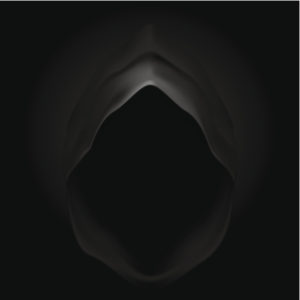
As humans, we naturally want to know what happens to our friends and loved ones after they die. That’s probably why nearly every culture throughout history has developed its own set of doctrines to explain and make sense of it. Like many other religions, Haitian Vodou, Louisiana Voodoo and other related belief systems posit that we possess a non-corporeal consciousness that continues to exist beyond death. As a guide to the underworld and one of the most powerful loa in the Vodou faith, Baron Samedi is a complex figure who plays an important role.
The Role of Loa in Vodun-Related Faiths
African slaves fused Dahomeyan traditional practices from West Africa with French Catholicism to create the various forms of Vodou in the Americas. This syncretic process gave rise to loa, or beings that serve as intermediaries between the world of the living and a distant, unknowable creator God named “Bondye.” It’s interesting to note that both “loa” and “Bondye,” like many other terms in Vodou, are derived from French words. “Bondye” comes from the French “Bon Dieu,” or “good God,” while “loa” originated from “les lois,” or “the laws.”
Baron Samedi, the Grave, and Lan Guinée
As explained by a 2014 article in Kreol International Magazine, one of Baron Samedi’s main functions is to excavate the graves of the newly departed and meet their souls as they rise. From there, he guides them to lan guinée, a Haitian term for the afterlife that translates to “Guinea” or West Africa. This loa speaks in a nasal voice while affecting a distinguished yet comical appearance, clad in a black tuxedo and top hat while carrying a cane. Depending on who you ask, he either wears dark sunglasses and cotton plugs in his nose or face paint that resembles a skull. He’s also a “rude, crude dude,” gifted with a witty yet profane sense of humor and a marked preference for cigars and rum. Notably, his feast day is November 2, which coincides with All Souls’ Day commemorations by Catholics, Eastern Orthodox, Anglican and other Christian denominations.
Along with escorting the dead to the afterworld, Baron Samedi is capable of permitting or denying admittance. If a person offends the Baron, he may allow him or her to wander for eternity as a mindless zombie. In a 2012 New York Times article, contributor Amy Wilentz mentions that slave owners may have used a “fear of zombification” to deter Haitian slaves who might commit suicide. That’s because death was frequently seen as the only escape from the horrifying conditions on the island’s sugar plantations, which included 12-hour days of backbreaking labor, starvation and torture.
The Baron’s Role in Life and Fertility
Just as Haitian Vodou and folklore associates Baron Samedi with death and zombies, he’s also a symbol of healing and renewal. He, along with his wife, Maman Brigitte, are members of the Guede family of loa that oversees life, death and fertility. The Baron has power over life and death, capable of curing mortal illnesses and serious wounds as well as counteracting hexes and curses. His guardianship of cemeteries means that he can refuse to dig someone’s grave, therefore preventing that person from dying. Phallic symbols on his altars, along with his penchant for flirting with mortal women, reveal a connection to fertility and sexuality.
Humans find death to be mysterious and frightening, so the idea of a familiar, trustworthy presence guiding the dead into unknown realms can be comforting to the living. We want to believe that our loved ones are not alone in the hereafter. While psychopomps like Baron Samedi can seem fearsome or strange, they serve the important purpose of giving us such reassurance.

